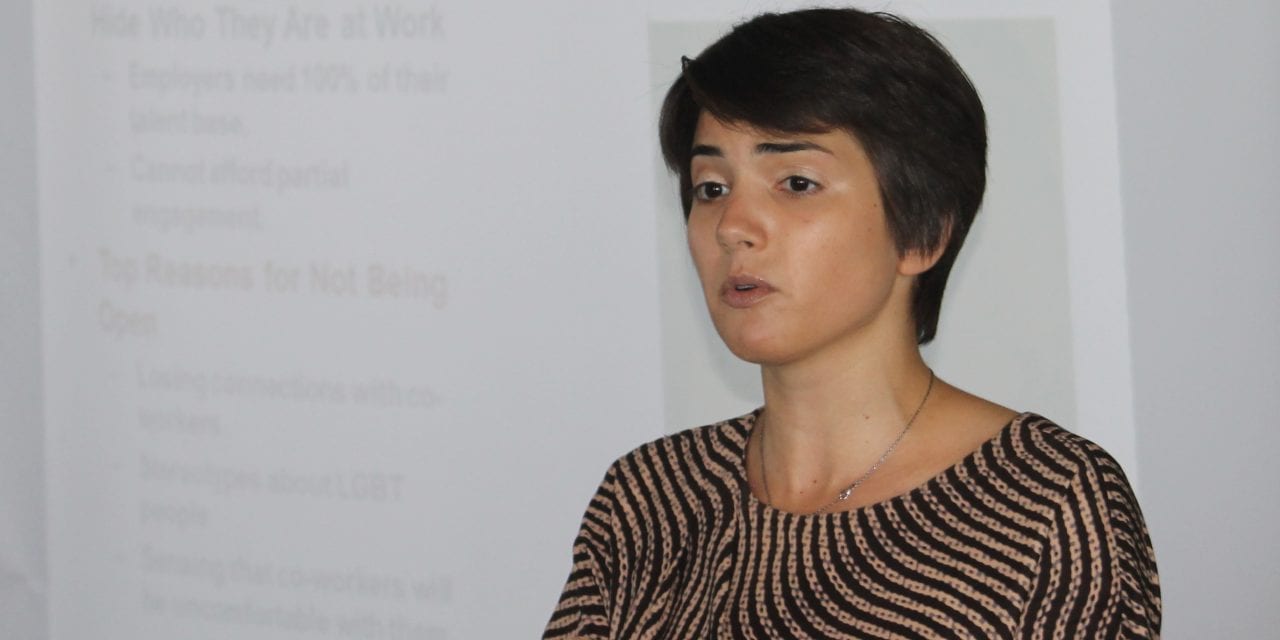
Deena Fidas, deputy director of HRC’s Workplace Project, spoke about inclusive practices in the workplace at a Degrees of Equality Luncheon Workshop at Thanksgiving Tower on Monday. (John Wright/Dallas Voice)
Ten percent of LGBT workers have left jobs because the work environment wasn’t inclusive, according to a new Human Rights Campaign study.
Deena Fidas, deputy director of HRC’s Workplace Project, spoke about the study’s unpublished results at a Degrees of Equality Luncheon Workshop at Thanksgiving Tower in downtown Dallas on Monday.
Fidas said the study was first done in 2009 where LGBT workers were asked about the workplace climate. That study showed that 51 percent of workers were closeted on the job.
The study was redone last year and its results will be made public in a couple of weeks, but Fidas gave a few of its findings at the luncheon. In addition to the 10 percent of workers who leave over the climate, she said one in four workers have stayed with a company because of an inclusive environment.
The 2012 study also surveyed non-LGBT workers to analyze common themes among workers. Despite wins for equality since 2009, 53 percent of people said they were closeted. Fidas said the higher number was because many were young professionals afraid to be out at their first job. Others feared stereotypes, co-workers being uncomfortable or straining co-worker relationships.
Among non-LGBT workers, 80 percent said social lives and relationships came up weekly and often daily in conversation and 81 percent said LGBT workers shouldn’t hide who they are at work. However, more than half felt uncomfortable hearing social stories about LGBT workers and more than 70 percent said it’s unprofessional to talk about sexual orientation and gender identity at work.
Fidas said the idea that it’s unprofessional to discuss sexual orientation or gender identity at work represents a double standard because a straight woman who mentions her husband is considered normal, but if a woman mentions her wife, it brings sexuality into the conversation.
“For us as LGBT people, talking about mundane actions, it gets inappropriately sexualized at work,” she said.
Fidas said research shows a clear gap in mid-level management when it comes to workplace inclusion. Twenty-five percent of LGBT workers said they sometimes hear negative things about LGBT people, with 8 percent frequently hearing negative things about LGBT people. And a third feel depressed at work or feel anxiety over conservations at work because of their sexual orientation or gender identity.
Fidas said the research is helping HRC identify ways to bridge the gap between senior leadership and employee resource groups, so the importance of inclusion is communicated to mid-level management. HRC is also launching a training program to target human resource professionals to help with the discomfort of LGBT workers on the job about being LGBT.









